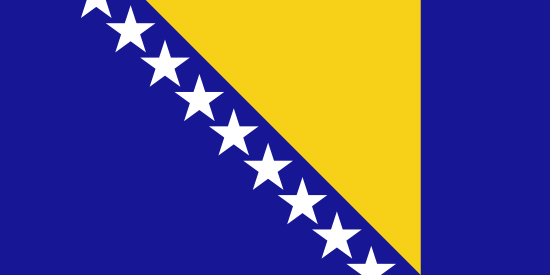
Health Insurance in Bosnia and Herzegovina, Europe
Information expatriation
Capital City: Sarajevo
Total area: 51,197 km2
Population: 3,935,000
Money: Currency Converter
Time Zone: List of time zones by country
Calling Code: +387 XXX
Practical Information:
Wikipedia Bosnia and Herzegovina
Health Product: Travel Insurance and Health insurance
Health Insurance information and Sanitary Risk: World Health Map
BLOG: Expat Health insurance Information
Here is a brief description of the healthcare system in the country:
· Bosnia and Herzegovina has a universal healthcare system that provides coverage for all citizens. However, the system is decentralized and complex due to the country's governance structure with two autonomous entities - the Federation of Bosnia and Herzegovina and Republika Srpska.
· Each entity has its own public health insurance fund that is financed through contributions from employers and employees. Citizens are required to pay into one of these funds.
· Healthcare services are provided through a mix of public and private clinics and hospitals. The public facilities tend to be better equipped and staffed than private ones.
· Primary care is usually the first point of contact for patients seeking medical help. People are registered with individual primary care providers or family medicine centers.
· Specialist and hospital care require referrals from primary care physicians, except in emergency situations. Public hospitals provide the bulk of specialist and inpatient services.
· The quality of healthcare varies regionally, with more resources concentrated in urban areas. Rural access to services can sometimes be limited.
· Out-of-pocket payments still comprise a significant portion of health expenditures despite the universal coverage. Infrastructure and resources also remain below optimal levels in parts of the system.
Here are some key health considerations for expatriates living in the country:
· Registration - All residents are required to register with the public health insurance fund in their region. Expatriates will need to register upon arrival and contribute to the fund through payroll taxes.
· Language barriers - English proficiency in the healthcare system can be limited outside major cities. It's advisable to acquire some basic medical language skills in Bosnian/Croatian/Serbian. Translation assistance may be needed at times.
· Specialists - Waiting times can be lengthy for specialist appointments and elective procedures through public insurance. Those needing prompt advanced care may consider supplemental private insurance.
· Medications - Not all drugs available abroad may be accessible locally. Expatriates should bring any regular medications they require for at least the first few months.
· Documentation - Medical records and health history need to follow international standards. Expatriates should obtain documentation of vaccinations, past treatments, etc. in English.
· Insurance - Public coverage alone may not be sufficient. Supplementary private medical evacuation and repatriation insurance is highly recommended for long-term expats.
· Rural limitations - Access to after-hours care and ambulance services can be limited in remote areas. Proximity to major city healthcare should be a consideration.
